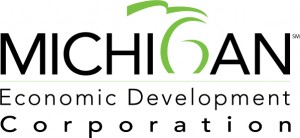 While Detroit’s bankruptcy, its sports teams and automobile companies make the big national headlines, one can argue that the state of Michigan’s public policy agenda is increasingly driven by the cities and leaders of west Michigan.
While Detroit’s bankruptcy, its sports teams and automobile companies make the big national headlines, one can argue that the state of Michigan’s public policy agenda is increasingly driven by the cities and leaders of west Michigan.
Think about the big economic policy changes of recent years: Right-to-work legislation, the scrapping of the Michigan Business Tax and later the personal property tax.
All were pet causes advanced and debated vigorously at the sold-out West Michigan Policy Forum (WMPF), a biennial gathering of business and civic honchos that began in 2008 — and convenes again tonight and Monday for the fourth time in Grand Rapids.
Certainly there is a conservative, pro-business thrust to the forum. But it would be a mistake to attribute the Grand Rapids region’s growing influence to simply the political math in Lansing, where Republicans now hold the governor’s office and control the Legislature.
A town once thought of as stodgy, Grand Rapids is acquiring cultural cachet as a place for risk-taking and edgy events. Its annual ArtPrize competition and citywide exhibition — in full swing during this week’s WMPF — attracts more than 200,000 visitors a year. Grand Rapids also has won national fame for its craft beer scene, and is backing a bold $27.5-million WhiteWater plan to restore the rapids to the Grand River running through town.
With the forum, “we aim to be provocative and professional,” said Jim Dunlap, senior executive vice president of Huntington Bank and chair of the 2014 WMPF. Noting that the forum tackles specific issues each year and puts them to a vote afterward, Dunlap said controversial speakers and blunt opinions are welcomed.
Acerbic columnist and television commentator Charles Krauthammer is the luncheon keynote speaker Monday. Former Gov. Jim Blanchard, a Democrat, will speak on the issue of term limits, as will Republican Dick Posthumus, former lieutenant governor and adviser to current Gov. Rick Snyder, who will also address the forum.
For a discussion on talent and education, Dunlap said the forum will hear from the “very controversial” Ruby Payne, author of “A Framework for Understanding Poverty,” which has created a stir among academics in education for its ideas on class and wealth.
When the WMPF was launched in 2008, its intent was partly to take on emotional issues like right-to-work that other groups — such as the Legislature, or the Detroit Regional Chamber’s annual Mackinac Policy Conference — had shied away from as too divisive.
Today, Dunlap said, the West Michigan forum wants to keep on stoking the discussion — especially on issues critical to jobs and economic competition — even though the state’s economy is much improved since 2008.
“We made very healthy progress over the last four years, but the economic recovery is still fragile,” Dunlap said. “We don’t want to do anything that will knock us off track.”
Birgit Klohs, president and CEO of the Right Place, a nonprofit Grand Rapids economic development group for the west Michigan region, said she has “never felt more optimistic about the state than I do right now.”
But she said the state’s leaders have failed to address Michigan’s crumbling roads and other key infrastructure issues.
“World-class infrastructure,” she said, “is the key to economic development. Roads, water, sewer and broadband, too. You can’t be dropping phone calls in northern Michigan when in the middle of the desert in Israel, reception is fine.”
She’s right about that. Good things are happening in Michigan — lots of data show that — but we are still not a top-tier state for business and jobs.
Pollina Corporate Real Estate, a Chicago-based site-selection consulting firm, had long been an outspoken critic of Michigan, ranking the state near the bottom of its annual list of pro-business states. This year the firm rated Michigan as “most improved,” jumping from 39th to 18th in its rankings.
Eighteenth isn’t good enough, though, because Michigan is no longer competing for investment, jobs and talent merely with Indiana, Ohio and other nearby states.
Competition is global on all fronts, and the West Michigan Policy Forum aims to keep poking the state’s policy makers to keep that in mind.
Source: MEDC
Click here to be introduced to the MEDC



